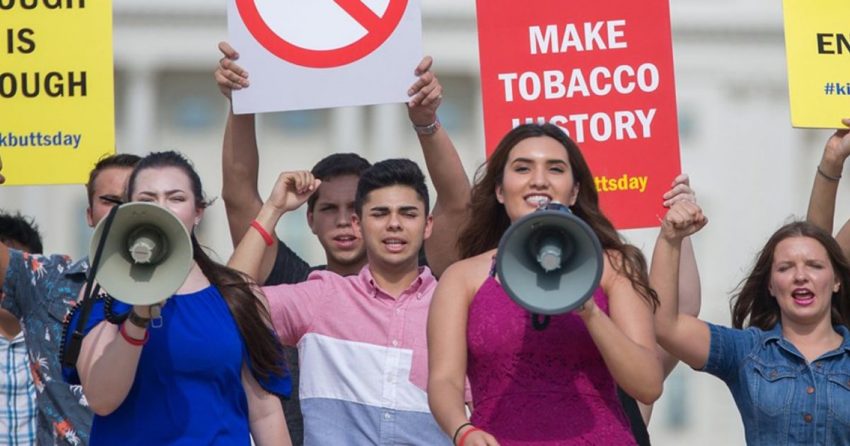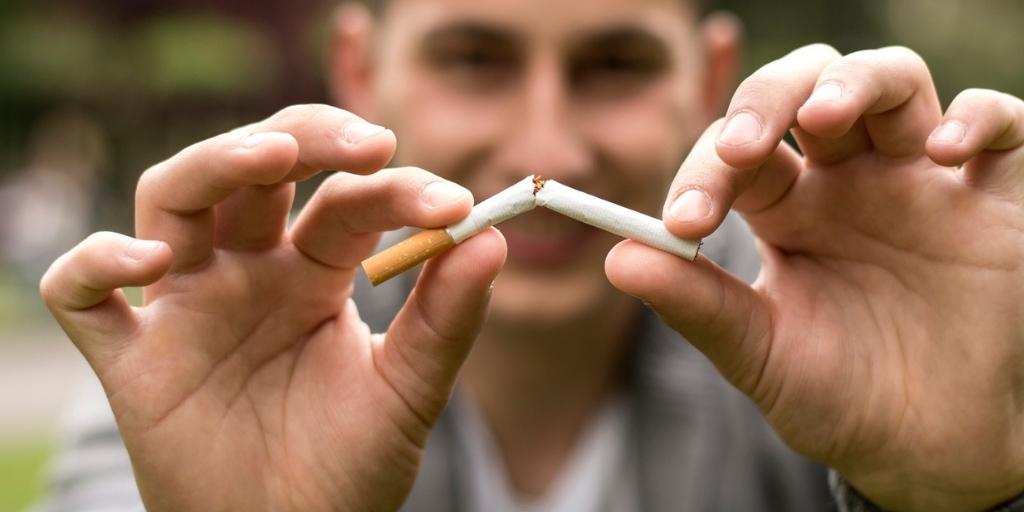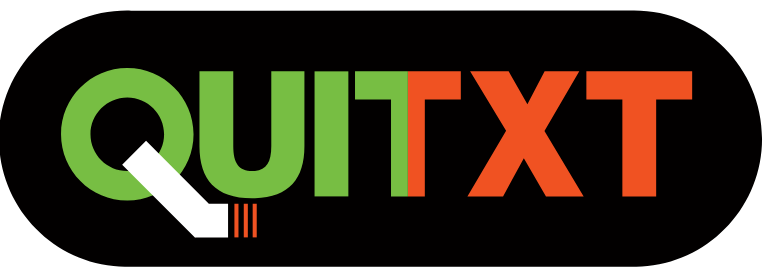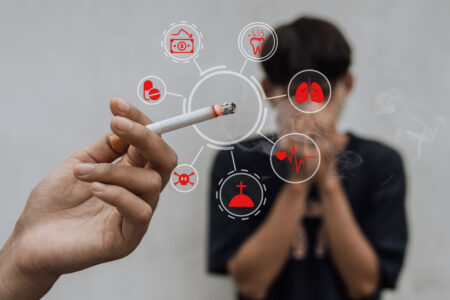
Share On Social!
How can you stand up to the tobacco industry?
On March 31, you can participate in Take Down Tobacco National Day of Action!
Take Down Tobacco, a fresh take on Kick Butts Day, is the Campaign for Tobacco-Free Kids’ signature platform for empowering people to speak out against the tobacco industry.
You can:
- Join the movement
- Host an event
- Play games in the Take Down Tobacco Arcade
- Plan events or share on ocial media with #TakeDownTobacco
The team behind Salud America! is working to help young adults quit smoking with Quitxt, our free English or Spanish text-message service that turns your phone into a personal “quit smoking” coach from UT Health San Antonio.
To get help, text “iquit” (for English) or “lodejo” (for Spanish) to 844-332-2058.
“On this Take Down Tobacco National Day of Action, we’re excited to share Quitxt to help young adults with motivation to quit, setting a quit date, handling stress, and much more, all on your phone,” said Dr. Amelie G. Ramirez, director of the Salud America! program at UT Health San Antonio, and also Quitxt, sponsored by the Cancer Prevention and Research Institute of Texas. “Quitting now can reduce your risk of chronic diseases, cancer, and a severe case of COVID-19.”
The Data: How Many People Are Smoking?
U.S. cigarette smoking rates have declined from 42% in 1965 to 13.7% in 2019.
But over 32.4 million American adults still smoke cigarettes, according to the American Cancer Society. In South Texas, cigarette smoking rates are high among Mexican Americans, ranging up to 25.7%.
Certain groups suffer disproportionately from smoking-related diseases.
“These populations tend to be those who experience inequities in multiple areas of their lives, including those at lower socioeconomic levels, those without college degrees, American Indians/Alaska natives, African American/Black communities [and Latinos],” the American Cancer Society reports.
Smoking is also on the decline among youth, but e-cigarette use is rising.
Reports show that young Latinos are increasingly using e-cigarettes. Young people who vape are extremely susceptible to COVID-19 — about five times more likely than non-vapers, according to a May 2020 Stanford University study.
“Skyrocketing youth e-cigarettes rates are reversing the progress we’ve made toward achieving the first tobacco-free generation,” according to the Campaign for Tobacco-Free Kids’ Take Down Tobacco web page. “And of course, from cigarettes and cigars to smokeless tobacco to heat-not-burn cigarettes, the tobacco industry peddles a wide range of addictive and dangerous products that put kids at risk across the globe.”
The Science: Smoking Is Unhealthy for You and Those around You
Smoking remains the single largest preventable cause of death and illness in the world.
Cigarette smoking causes an estimated U.S. 480,000 deaths every year, or about 1 in 5 deaths. Smoking is the leading cause of cancer death, accounting for 29% of all cancer deaths. Also, more than 16 million Americans live with a smoking-related disease.
And that’s before we get to secondhand smoke, which contains over 7,000 chemicals.
“Since the 1964 Surgeon General’s Report, 2.5 million adults who were nonsmokers died because they breathed secondhand smoke,” according to the CDC.
Secondhand smoke exposure is linked to several types of cancers, heart disease, stroke, lung cancer, and more frequent and severe asthma attacks, respiratory infections, and more.
“There is no risk-free level of exposure to secondhand smoke,” CDC reports.
Most Smokers Want to Quit Smoking, But it Isn’t Easy or the Same for Everyone
Nearly 70% of current U.S. adult smokers want to quit smoking, according to CDC data.
More than half of adult smokers made a quit attempt in the past year. Among youth who use tobacco, more than half report seriously thinking about quitting and report making a quit attempt in the past year.
For Latinos, Once they’ve started, they are more likely to keep smoking and only half as likely as whites to successfully quit smoking, according to recent study.
“Though Hispanic/Latino smokers have high motivation to quit, with concern for health effects on children and the family as a primary motivator, they mostly rely on themselves for cessation,” according to researchers. “[They have] little use of cessation medication and support services.”
This is why support is so critical to quitting.
“Giving up smoking is a journey, and it can be hard, but you can increase your chances of success with a good plan and support,” according to the American Cancer Society. “Getting help through counseling and medications doubles or even triples your chances of quitting successfully.”
“Quitting smoking is a process, and success may look different for different people.”
Participate in Take Down Tobacco National Day of Action
The Campaign for Tobacco-Free Kids has led Kick Butts Day for the past 27 years.
 Recently, they changed the campaign to Take Down Tobacco to empower people to speak out against the tobacco industry. They are hosting Take Down Tobacco National Day of Action on April 1—April Fool’s Day.
Recently, they changed the campaign to Take Down Tobacco to empower people to speak out against the tobacco industry. They are hosting Take Down Tobacco National Day of Action on April 1—April Fool’s Day.
“The tobacco industry peddles products that addict, sicken and kill. So how do they get people to use products like that? They have to fool them. They use youth-oriented marketing to make it seem cool, brightly-colored packaging to make it seem fun, and sweet flavors to make it seem harmless – all to hook another generation,” according to the campaign. “Now, they’re trying to position themselves as ‘responsible’ and ‘reformed,’ as they vigorously fight efforts to reduce tobacco use. They’ve even taken advantage of COVID-19 to push their products!”
The campaign advocates for these activities:
- Promote public policies proven to reduce tobacco use and exposure to secondhand smoke. These include prohibiting the sale of flavored tobacco products, increasing tobacco product taxes, and restricting marketing.
- Expose and counter tobacco industry efforts to market to children and mislead the public.
- Strengthen tobacco control efforts in the United States and worldwide by providing support and information to our many partners.
- Mobilize organizations and individuals to join the fight against tobacco.
- Empower a tobacco-free generation by fostering youth leadership and activism.
- Inform the public, policy makers and the media about tobacco’s devastating consequences.
One recent big win was Congress raising the purchasing age for cigarettes and e-cigarettes. Other ways to make a change is to enact smoke-free policies in multifamily housing.
Get Help to Quit Smoking with Quitxt
Those who need help to quit smoking can simply turn on their phone.
Quitxt is a bilingual service from UT Health San Antonio and the Cancer Prevention and Research Institute of Texas that sends messages via phone texts or Facebook Messenger chat to help South Texas young adults quit smoking. Messages help with motivation to quit, setting a quit date, handling stress, and using nicotine replacement, if needed.
Join Quitxt:
The benefits of quitting smoking start right away.
In minutes, your heart rate and blood pressure drop. In hours, you carbon monoxide levels return to normal. Also, in weeks, you circulation improves, and coughing and shortness of breath decreases.
In a year, your heart disease risk falls by half. A 2020 study even found a 90% drop in the risk of premature mortality for those who gave up smoking before turning 40 years old.
“Quitting smoking can save lives now, and in the years to come,” according to the American Heart Association. “Simply put, health policies should aim to prevent young people from smoking and should clearly communicate the benefits of quitting to those who do smoke, ideally as young as possible, and before the onset of serious illness.”
Does Quitxt Really Work?
More than 1 in 5 Quitxt users fully quit smoking after completing the English version. This is according to 2017 data in the journal Health Promotion Practice.
 This quit rate is similar or better than other texting programs.
This quit rate is similar or better than other texting programs.
The study also confirms that text and mobile-media service specifically designed for young adults provide a feasible and cost-effective approach to promote cessation, according to the researchers led by Dr. Ramirez at UT Health San Antonio.
“There’s no better time than now to stop smoking with help from Quitxt,” Ramirez said. “Quitting smoking is proven to improve your health, increase your life span, and save money.”
By The Numbers
24
percent
of Mexican American-nonsmokers are exposed to secondhand smoke



